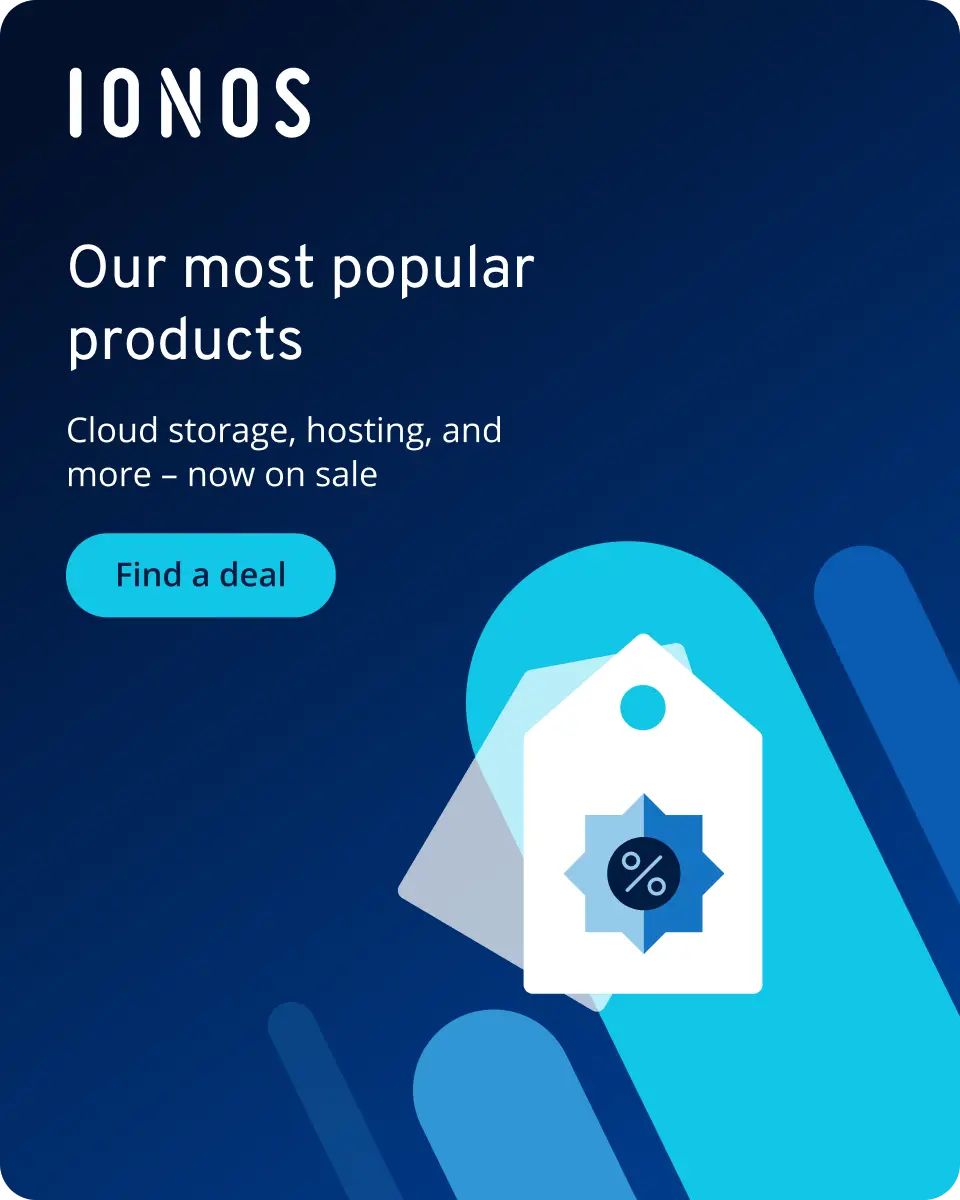What are the top 6 MySQL alternatives?
MySQL is one of the most successful and popular relational databases within the management system segment. While MySQL boasts diverse application possibilities, if you want to operate without table structures, you’ll need an alternative. Here, we’ll show you what the best options are.
- Enterprise-grade architecture managed by experts
- Flexible solutions tailored to your requirements
- Leading security in ISO-certified data centers
What is MySQL and which alternatives are there?
MySQL is one of the most well-known and widely used relational database systems in the world. The open-source software was developed in 1994 by MySQL AB and is now available from Oracle under the GNU license as well as in a proprietary version. MySQL stores structured data in table format and allows queries using the widely adopted SQL language. The database is considered very user-friendly and is especially well-suited for handling large volumes of data. Despite its relational model, it is highly flexible and can also work in combination with NoSQL systems. MySQL is known for its high availability and reliability, and it is compatible with a wide range of systems, programming languages, and platforms.
Last but not least, a large and active community makes MySQL a great choice for beginners as well. The database is part of the LAMP stack (Linux, Apache, MySQL, and PHP) and is used in many web applications. However, there are also arguments against the database—particularly its relational model. It offers no sharding options, which limits its scalability compared to other systems. Data must always be stored in tables and follow a fixed schema. While this can be efficient and well-organized for structured datasets, NoSQL solutions are often better suited for heterogeneous data types. Here are the best MySQL alternatives.
MariaDB: A reliable MySQL fork for modern database needs
MariaDB is an open-source alternative to MySQL, developed after MySQL rights were transferred to Oracle. In the direct comparison of “MariaDB vs. MySQL,” it quickly established itself as a standalone, future-ready solution. While it follows a clear relational model, MariaDB remains flexible: support for multiple storage engines, complex queries, and features like column-oriented processing make it appealing for analytical use cases as well. It’s a popular choice among organizations that value transparency, performance, and open standards. Companies like Walmart and Wikipedia demonstrate that MariaDB is well-suited for professional environments.
Key advantages of MariaDB at a glance
- Open source with active, independent development
- Fully compatible with MySQL, making migration easy
- Multiple storage engines for different use cases
- High stability, performance, and scalability
- SQL-based and easy to integrate
- Cross-platform compatibility
- Transparent licensing (GPLv2)
MongoDB: A flexible system for large data volumes
When you need a suitable NoSQL solution for your project that’s more flexible and more scalable than MySQL, MongoDB is a good choice. Created in 2009, the database management system works in a document-oriented manner and does away with rigid schemas. It stores structured, semi-structured and unstructured data in binary JSON documents, organizing them into collections. Utilizing sharding, it distributes data across different nodes, enhancing availability and reliability. The database’s horizontal scaling capability enables it to accommodate growing data volumes effectively. This renders MongoDB an ideal, cost-effective choice for web applications, content management systems and eCommerce projects.
If you’d like to learn more about the differences and similarities between MongoDB and MySQL, we recommend this article from our Digital Guide.
Key advantages of MongoDB at a glance
- Perfect for large and growing data volumes thanks to horizontal scaling
- High reliability and availability due to sharding
- Suitable for almost all types of data
- Very flexible
- Compatible with numerous languages, systems and platforms
- Flat learning curve
- Simple replication
Managed MongoDB from IONOS enables you to concentrate on the essentials. From installation to operation and maintenance work, IONOS makes sure you always get the best performance from your data banks.
DynamoDB: The most user-friendly solution
If ease of use is a top priority for you and you’re willing to hand off key administrative tasks, DynamoDB is a strong MySQL alternative. Developed by Amazon, this NoSQL database is part of the AWS (Amazon Web Services) portfolio. What makes it unique: the serverless system is fully managed for you. Monitoring, upgrades, and necessary scaling are all handled on your behalf, allowing you to focus entirely on your core business. DynamoDB offers virtually unlimited scalability and delivers high read and write performance. Costs for this fault-tolerant and highly available solution are based on actual resource usage, making it an attractive option even for smaller businesses.
Key advantages of DynamoDB at a glance
- Fully managed and very user-friendly
- Very scalable
- Payment according to consumption
- High read and write speeds
- High security standards
- Embedded in the Amazon Web Services
- Strong performance
- Good availability
Firebase: The ideal solution for developing applications
Firebase has been part of Google’s portfolio since the company acquired and expanded it in 2014. It encompasses a robust development platform with *18 products, some of which are fee-based. Firebase is particularly suitable for the development of web applications and mobile apps. It leverages various Google services and benefits from the tech giant’s market power in the SEO sector. Beyond that, it boasts strong performance and minimal latencies. This highly available and fail-safe database excels in projects demanding real-time analysis.
Key advantages of Firebase at a glance
- High speeds
- Very fail-safe
- Complete development platform with 18 services
- Good integration into the Google ecosystem
- Successful cloud connection
- Fast and competent support
- Ideal for mobile apps
- Cross-platform compatibility
Redis: The fastest alternative to MySQL
If you’re looking for a NoSQL solution that stands out for its low response times, the REmote DIctionary Server – better known as Redis – is an excellent choice. This open-source system stores data directly in memory, enabling real-time processing. As a result, it can achieve latencies of less than one millisecond, making the open source database significantly faster than MySQL. Redis is cross-platform and does not rely on its own query language. It can be scaled both horizontally and vertically and supports a wide variety of data types. The database is especially popular for real-time analytics, administrative tasks, and message brokering, making it one of the top options in these areas.
Key advantages of Redis at a glance
- Open source
- Unsurpassed speed due to storage in working memory
- Real-time analysis and sub-millisecond responses
- Horizontally and vertically scalable
- High user-friendliness
- Popular system with extensive documentation
- Flexible data processing
- High compatibility with different languages, platforms and systems
PostgreSQL: The robust object-relational database
In the realm of relational databases, PostgreSQL stands out as a formidable alternative to MySQL. Originating from programs developed in the 1980s, this object-relational database management system took on its current name in 1996. Renowned for reliability and impressive performance, PostgreSQL builds upon classic SQL for more targeted scaling. Its open-source nature allows for extensive customization through numerous extensions. It’s known to be particularly reliable and offers impressive performance. For structured data storage, PostgreSQL presents a compelling choice.
Key advantages of PostgreSQL at a glance
- Open source
- Very robust and secure
- Strong performance
- Many extensions
- Many scaling options
- Dedicated community
- High flexibility
- Many interfaces
- Versatile use

